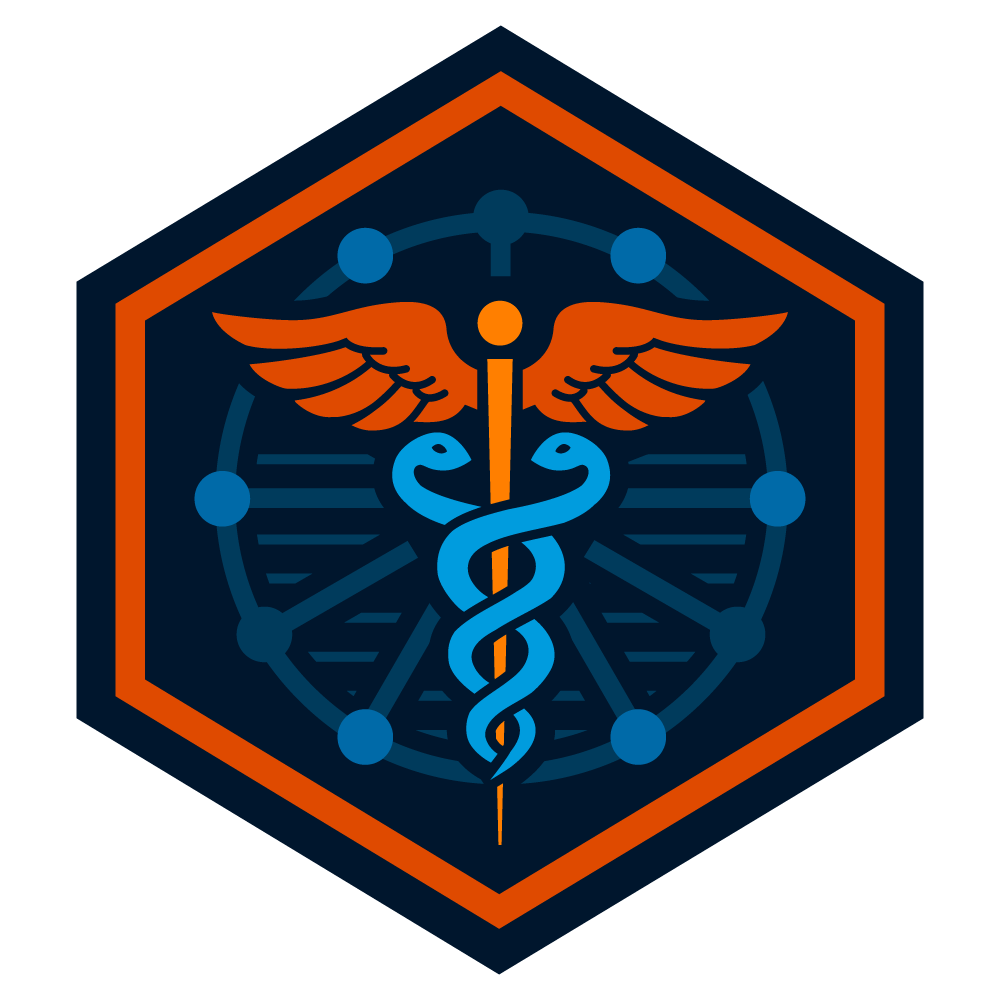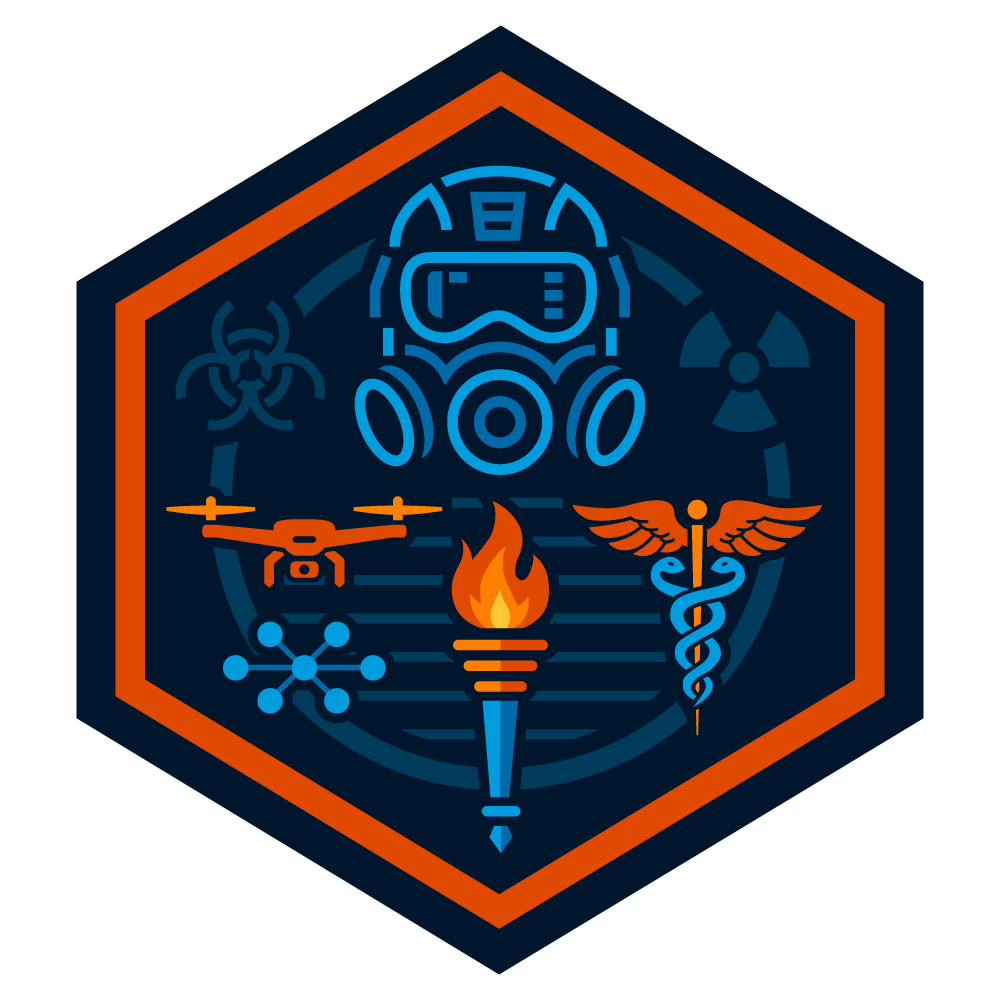- Home
- Explore
CYBERSECURITY
Cybersecurity qualifications unlock careers, prove expertise, drive innovation, and will shape the digital frontier in tomorrow’s AI-driven threat landscape.
Learn More
HOMELAND SECURITY
Homeland Security qualifications empower leaders, safeguard nations, advance resilience, and shape the next generation of defenders in an evolving global threatscape.
- Leadership and Management
- Emerging Technologies
- Medical Management & Prehospital Considerations
- Capstone
CPS PROGRAMS
George Washington University’s College of Professional Studies offers dynamic, career-ready courses in leadership, cybersecurity, CBRNE, technology, and public service—transforming professionals worldwide.
Learn More
REVU EXCLUSIVES
GW RevU’s growing number of exclusive courses offer a range of learning opportunities, from student success and introductory courses to cutting-edge courses about what is happening in the world now.
-
DC 101 (Coming Soon)
- Election Security
- Student Success Course
-
- Cybersecurity
CYBERSECURITY
Welcome to CyberForge.
MISSION — GW RevU aims to be a prime resource for lifelong learners and employers offering interdisciplinary, career-focused credentials that support up-skill, reskilling, and society advancement.VISION — GW RevU envisions delivering innovative, flexible education that meets evolving workforce needs and to empower professionals with current, market- and needs-based skills.
Learn More
PARTNERS
Cybersecurity (Coming Soon)
CISSP (Coming Soon)
- Homeland Security
HOMELAND SECURITY
Chemical. Biological. Radiological. Nuclear. Explosive. WMDs. Asymmetric Threats.
The CBRNE-WMD credentials program is a robust training series designed to prepare early and developing professionals for the complexities of a dynamic and evolving threat environment. Three interdependent certificates that deal with policy, mitigation, and emerging threats will propel you towards an immersive capstone in Washington, D.C. and the next steps in your career protecting our nation.


CBRNE-WMD Leadership and Management
Gain strategic leadership skills to manage CBRNE-WMD incidents through legal frameworks, interagency coordination, and real-world case studies.

CBRNE-WMD Hospital and Pre-Hospital Management
Learn medical response skills for CBRNE-WMD incidents, including triage, decontamination, PPE, and early threat detection in mass casualty events.

CBRNE-WMD Emerging Threats
Explore emerging CBRNE-WMD threats and technologies like AI and nanotech to enhance preparedness and response capabilities in complex environments.

CBRNE-WMD Capstone Event, Washington, D.C.
Experience an immersive, high-intensity, and multi-modal exercise that reflects the dynamic asymmetric threats of the modern world. The Capstone Experience is an annual event that is available to students that have completed the other CBRNE-WMD credentials.
- CPS Programs
CPS Programs
GW’s CPS bachelor programs empower working professionals with flexible, real-world education—launching impactful, leadership-focused, globally-oriented careers.
Learn More
BACHELORS DEGREES
GW’s CPS bachelor programs empower working professionals with flexible, real-world education—launching impactful, leadership-focused, globally-oriented careers.
Learn More
POSTGRADUATE DEGREES
CPS’s postgraduate programs transformed experienced professionals into visionary leaders through immersive, real-world learning, powerful networks, and practical rigor across critical fields.
- Cybersecurity Strategy & Information Management
- Homeland Security
- Legislative Affairs
- Paralegal Studies
- Political Management
- Public Relations & Communications
- Publishing
- Sustainable Urban Planning
REVU EXCLUSIVES
GW RevU’s growing number of exclusive courses offer a range of learning opportunities, from student success and introductory courses to cutting-edge courses about what is happening in the world now.
Learn More
- About RevU
CBRNE-WMD Micro-Credential
CBRNE-WMD Hazardous Threat Response
Dive into the role of AI, nanotechnology, 3D printing, and synthetic biology in countering CBRNE-WMD threats while addressing the ethical and legal challenges of their use. With insights from industry experts, case studies, and interactive discussions, this program equips learners to understand, mitigate, and respond to evolving threats in a rapidly changing technological landscape.
Start your journey toward becoming a CBRNE-WMD defense expert today.
First Cohort Starts
Monday, January 13th!
Pricing
Micro-Credential Cost:
$299$249 First Cohort Pricing- 10% GWU employee discount
- 10% GWU alumni discount
- 10% discount for organizations that send three or more participants
- All-inclusive pricing—all readings, media, and platform fees included.
For questions about pricing and discounts, don’t hesitate to contact revu@gwu.edu for more details.
Registration deadlines
Monday, January 6th (Application Cutoff Date)
- Apply by 1/6/25 to ensure your spot in the upcoming cohort
- The cohort will be capped at 20 participants
For questions about applying or registration, don’t hesitate to contact revu@gwu.edu for more details.
WHAT YOU EARN
- 40 contact hours to apply towards your professional development
- The ability to critically assess complex problems involving emerging technologies
- Skills in crisis response, interagency coordination, and Co-op
- A digital badge, Continuing Education Hours, and a GW RevU Micro-Certificate
- The prestige that GW- and industry-certified credentials add to your CV
Visit the Continuing Education Hours page for more details about how GW RevU will support your professional development journey.

Learners Will Complete 40 Contact Hours “…What is relative today may not be relevant tomorrow. Because of these technological complexities, our nation will need to develop the talent at the speed of relevance to detect and defeat these ever-growing threats.“
Bobby baker, CBRNE Training Specialist Global Security Division and Homeland Security advisory Panel memberApplication Requirements
To be eligible for the GW RevU Micro-Credential Program, applicants must meet the following minimum requirements.
- Academic and Professional Standing: Applicants must be in good professional standing and have been actively working in their field of study or service for at least two years.
- Professional Background: Candidates with relevant experience in fields such as healthcare, public health, emergency management, law enforcement, security, engineering, environmental sciences, elected officials, telecommunications, or any other discipline associated with private sector or governmental roles in CBRNE (Chemical, Biological, Radiological, Nuclear, and Explosive) threat detection, mitigation, or consequence management are eligible for consideration.
- Submission of Documents: Each applicant is required to submit a current resume outlining their professional experience. Additionally, a letter of endorsement from a supervisor or someone in their chain of command is mandatory to verify their qualifications and support their participation in the program.
Credential Start Dates
- Cohort 1: Monday, January 13th, 2025
- Cohort 2: Monday, March 31st, 2025
Tentative Cohort 1 Key Dates
Monday, January 13th — Start of CBRNE-WMD Emerging Threats and Technology Micro-Credential
Synchronous Session Dates for Cohort 1 Coming Soon!
Friday, March 7th — Conclusion of CBRNE-WMD Emerging Threats and Technology Micro-Credential
- Note: All materials and assessments must be completed by this date to complete the credential
Credential Specific Details
Our CBRNE-WMD Credential Program is a collaborative online format that prioritizes an on-demand curriculum to fit into the busy lives of working professionals. Eight modules are spread out over the eight-week cohort; each module delivers approximately 5-hours of engagement. This credential will provide approximately 40 hours of learning, featuring videos, articles, websites, and other resources collected and developed by subject-matter experts across the CBRNE-WMD and asymmetric threat landscape. Their knowledge and skills will prepare you to be an effective and proactive leader when you find yourself in the action. No matter where you are, you can engage and learn.
In this experiential program, you’ll learn from a practitioner-based curriculum that delivers real-world skills and knowledge, including:
- Comprehensive Knowledge: Learn leadership strategies, emerging threats and medical response protocols in the context of CBRNE-WMD and asymmetric incidents.
- Practical Skills: Train in strategic planning, advanced technology application and medical countermeasures to enhance readiness for real-world CBRNE-WMD scenarios.
- Real-World Application: Complete a scenario assessment replicating actual CBRNE-WMD challenges, ensuring you can apply your learning effectively.
- Build Your Network: Each offering will be taught by experts from government, industry, and academia, who provide you with the most current and relevant insights to grow your skills and network.
You will complete 40 contact hours in this credential
Module 1: Introduction to Emerging Technologies and their nexus to CBRNE-WMD and Asymmetric Threats
- Understand the role of emerging technologies such as AI, nanotechnology, 3D printing, and synthetic biotechnologies in CBRNE-WMD proliferation and threat dissemination.
- Explore current and future applications of these technologies in enhancing the offensive capabilities of asymmetric actors and state actors.
- Evaluate how these technologies are leveraged to counter CBRNE threats through improved detection, protection, and response strategies.
- Analyze real-world case studies that highlight the application of these technologies in Chemical, Biological, Radiological, Nuclear, and Explosive scenarios.
- Discuss the ethical and legal challenges associated with these emerging technologies in the context of national and global security.
Module 2: Nano-Technology in CBRNE-WMD
- Understand the foundational concepts of nanotechnology and its significance in CBRNE threat response.
- Explore the current applications of nanotechnology in detecting, protecting against, and decontaminating CBRNE agents.
- Analyze future directions in nanotechnology, particularly in enhancing capabilities within each CBRNE modality.
- Discuss real-world case studies to evaluate the effectiveness and challenges of nanotechnology in CBRNE scenarios.
Module 3: Artificial Intelligence and CBRNE-WMD
- Understand AI’s dual-use potential in enhancing and preventing the proliferation of CBRNE-WMD incidents.
- Explore current and future applications of AI in the detection, prevention, and response to CBRNE threats across various modalities.
- Analyze real-world case studies of AI’s role in CBRNE events, examining the ethical and legal implications.
- Evaluate how AI can be realistically implemented at local, state, and federal levels to counter low-frequency, high-impact CBRNE incidents.
Module 4: Additive Manufacturing and 3D-Printing related to CBRNE-WMD
- Identify both beneficial and nefarious applications of 3D printing in producing and disseminating CBRNE materials.
- Examine case studies of how nefarious actors have used or could use 3D printing to enhance CBRNE threats.
- Discuss and categorize the specific uses of 3D printing within each CBRNE modality.
- Analyze regulatory, ethical, and security implications of 3D printing in the context of CBRNE proliferation.
Module 5: Quantum Technologies in CBRNE-WMD
- Summarize various quantum technology CBRNE-WMD
Module 6: Synthetic Biological Technologies
- Analyze the steps required for synthetic biological technologies
Module 7: Illicit Application of Emerging Technologies
- Synthetic Biology: Potential for creating synthetic pathogens, gene editing, and bioengineering for malicious purposes.
- 3D Printing: Risks associated with the 3D printing of explosive devices, weapon components, and chemical dispersal mechanisms.
- AI and Machine Learning: Role in creating sophisticated delivery methods, predictive threat modeling by adversaries, and autonomous weapons systems.
- Drones and Autonomous Systems: Drones deliver biological agents, disperse chemical aerosols and position radiological sources.
Module 8: Implementing Advanced Technologies in protecting, preventing, responding, and recovering from CBRNE Incidents
- Explore how future technologies could stress or even invalidate current CBRNE-WMD technologies and defenses.
Meet Our CPS Faculty
The College of Professional Studies and the Graduate School of Political Management feature world-class faculty with years of industry experience. Learn from top academics in their expertise as they deliver knowledge to enhance your understanding of election security.

Jeff Delinski
Program Director (Homeland Security Bachelor’s Degree Completion); Assistant Professor
Elaine Lammert
Program Director (Homeland Security Master Professional Studies); Associate Professor
Meet Our Industry Experts
Learn from top professionals in the field, including military veterans, emergency management experts, and specialists in CBRNE-WMD defense. These instructors bring a wealth of experience from government, industry, and academia, providing you with the most current and relevant insights.

Bobby Baker
CBRNE Training Specialist Global Security Division and Homeland Security Advisory Panel MemberThank you for your interest in the George Washington University’s College of Professional Studies. Please fill out the request for information form below, and we will be in touch shortly.
Loading…Thank you for your interest in the George Washington University’s College of Professional Studies. Please fill out the request for information form below, and we will be in touch shortly.
Request Information

Georgie
This AI chatbot provides automated responses, which may not always be accurate. By continuing with this conversation, you agree that the contents of this chat session may be transcribed and retained. You also consent that this chat session and your interactions, including cookie usage, are subject to our privacy policy.

